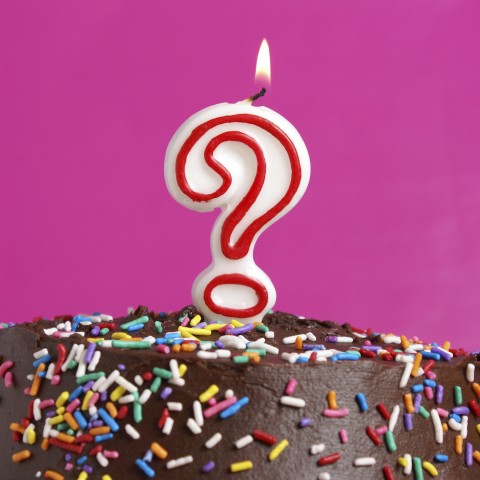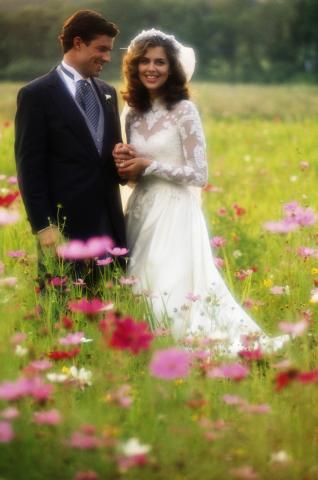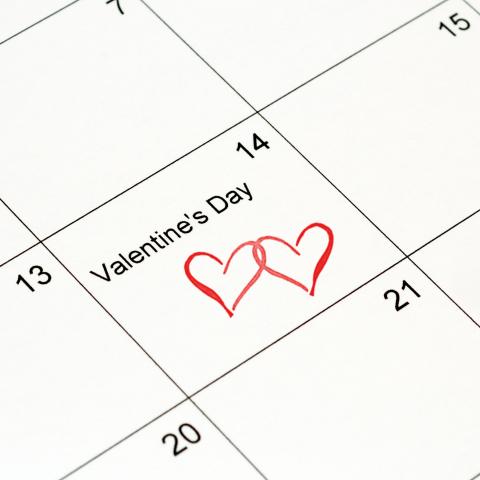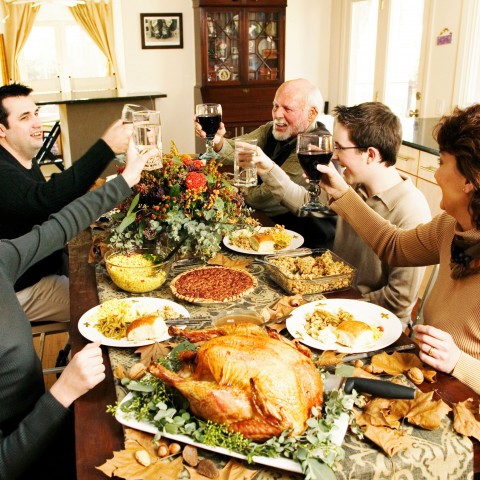By learning how to write life event messages, you’re opening a door to growing personal relationships with others. This is especially important when you’re in a country that speaks a language other than your native tongue. People appreciate it when you take notice of their major life events and offer your congratulations or condolences appropriately.
There are some life events that just about everyone can relate to, whereas others are specific only to one or a few countries. Those that are familiar to you already can help build relationships based on similarities, while those that are unfamiliar give you the opportunity to show your respect for the country’s traditions.
Learn how to wish “Happy Birthday” in English, and other life event messages, with EnglishClass101.com!
A note before we begin:
It’s very easy (and natural) to adopt phrases and use them when you’re supposed to. That’s what this article is here for, after all! But turning good wishes and encouragement into politics or ritual is always a risk if you never go deeper. When it comes to those close or important to you, don’t be afraid to test the waters with your English, and send a more heartfelt message—words from the heart can really change a life for the better. This is a good place to start, but continue to improve your English so you can form more meaning around your words!
Now, I’ll teach you Happy Birthday phrases in English, as well as messages for other life events. At EnglishClass101.com, we hope to make learning English both fun and informative!
Table of Contents
- Many Ways to Say Happy Birthday!
- Baby Showers & The Birth of a Baby
- Graduations
- New Job or Promotion
- Retirement
- Weddings & Anniversaries
- Funerals & Offering Condolences
- Responding to Bad News
- Responding to Injuries or Illness
- Sample Holiday Greetings & Messages
- Conclusion: How EnglishClass101 Can Make You a Master of English Messages
1. Many Ways to Say Happy Birthday!
In the United States, we love to celebrate the birthdays of others (and our own)! Birthday celebrations vary from person to person (and family to family), with celebrations tending to become less elaborate and special as we grow older. But cake, cards, and a well-placed birthday message are always welcome! As for the Happy Birthday Song, well, it depends on who you ask.
1- General Birthday Wishes
Believe it or not, there are both formal and informal ways of wishing someone a happy birthday. I’ve categorized common birthday messages below accordingly, as well as added a couple of versatile expressions that can be used either formally or informally.
Formal
- Wishing you the best on your birthday.
- This is a more formal birthday wish and sounds a lot more natural in writing than in speech. It’s a nice phrase to use in a birthday card to someone you’re not very close with, or to post on their social media.
- Have lots of fun on your special day!
- This is another birthday wish that’s better in writing and is more casual than the above phrase. It’s something you may see written on your social media from a distant relative or a former teacher/employer.
Informal
- Happy Birthday!
- This is by far the most commonly used birthday wish. It can be used both in writing and in speech, and sounds equally natural in either. Do note that this phrase is also pretty impersonal since there’s not a lot of meaning behind it.
- Happy Belated Birthday!
- You can use this phrase if you really wanted to wish someone a happy birthday, but completely forgot about it… This phrase can be used both in writing and in speech.
- Congratulations on another trip around the sun.
- People often use this phrase in reference to the fact that the earth revolves around the sun over the course of one year. One year older means one more time around the sun. It can be used in both writing and speech, but tends to be more commonly used in writing (particularly on social media).
Either/Or
- I hope you have a great birthday!
- This is a pretty generic birthday wish, and can be used both in writing and speech. Further, you can say this to people you know well, or people you hardly know at all. It’s wordier than “Happy Birthday” but still impersonal.
- Congratulations on turning another year older!
- This is similar to the “trip around the sun” birthday wish but sounds a little more formal. It tends to sound more natural when written, making it great for birthday cards or social media messages.
2- Special Birthdays
In the United States, there are a few birthdays we like to focus on more than others. Below are some common expressions used to wish someone a happy birthday on these special birthdays. Keep in mind that these tend to fall into the either/or category, meaning that they’re not considered extremely formal or informal. Feel free to use them at will! 😀
- Happy Sweet 16!
- In the United States, we consider a person’s sixteenth birthday a big deal and often celebrate it with a party or get-together. This type of celebration is most common for girls.
- Happy 18th – you’re an adult now!
- Eighteen is the age of officially becoming an adult in the United States, and is probably the most looked-forward-to birthday by children and teens because there’s so much more freedom. This phrase is pretty generic, but it (and its variations) are commonly seen on social media.
- Congratulations on turning 21! Don’t drink too much.
- After someone’s eighteenth birthday, they still have to wait three years before they can legally buy alcohol—making the twenty-first birthday another huge milestone! It’s common for people to joke about not drinking too much while wishing someone a happy twenty-first birthday.
- Wow, 30! You’re getting old.
- There’s a certain stigma about turning thirty in the United States, and it’s often associated with the gradual moving forward from youth. People often joke about “getting old” when wishing someone a happy thirtieth birthday.
- I can’t believe you’re turning the big 4-0.
- Forty is another big birthday in the United States, typically marking the end of “youth” and the beginning of a person’s “middle-aged” years. Sometimes, people refer to this as “the big 4-0.” After forty, every tenth birthday (fiftieth, sixtieth, etc.) tends to be celebrated more so than other birthdays.
2. Baby Showers & The Birth of a Baby
A pregnancy can be one of the most exciting moments in a couple’s life, so of course they’ll want to share it. For the soon-to-be mama, it’s common for friends and family to host a baby shower, during which she’s gifted with practical things for the coming baby (clothing, diapers, bottle warmers, etc.), and all the guests play baby-related games.
After the baby is born, don’t be surprised to see your social media freckled with pictures of the new baby and tons of ooh-ing and ahh-ing comments below them, along with best wishes for the family.
1- Informal
- He/she is so adorable!
- This is the kind of ooh-ing and ahh-ing that new parents will hear from close friends or family members. It’s often used on social media after the parents post pictures of the new baby, but can also be used in speech when actually seeing the baby in person.
- He / she looks just like his / her mother / father!
- Another common way of complimenting the baby and its parents is to use this phrase, either in writing or in person. In the United States, we enjoy pointing out similarities in appearance, and it often makes the parents happy to hear. For example, a mother may beam when someone says of her son: “He looks just like his father!”
2- Formal
- Congratulations on your new baby boy/girl!
- This is one of the most common phrases used for congratulating a new baby. This is mostly considered a formal phrase, though it can also be used informally. It simply congratulates the couple on their baby, and doesn’t have very much meaning behind it.
- Wishing you and your little one a happy life!
- This phrase has a little more meaning behind it, but is used formally in most cases. It’s a way of not only congratulating the couple, but wishing them the best for their (and their child’s) future.
- Enjoy these days while you can; they’ll be over before you know it.
- Honestly, this phrase is a bit of a cliche, but it is a favorite for many people. This is usually said by someone who has older or grown children as a reminder to the new parents to enjoy every second with their little one.
3. Graduations
Graduating, whether from high school or college, is one of the most significant moments in a person’s life. It’s also one of the most exciting as new possibilities and even a brand new life lies ahead. Take some time to wish the new graduate well and congratulate them on their success and the hard work they put in to get there!
- Congradulations!
- This is a phrase you’ll hear and read everywhere during graduation season. It’s a play on words, where the t in “congratulations” is replaced with the d in “graduation.” It’s a clever way of congratulating someone on their graduation.
- Congratulations on your well-deserved success.
- This is a much more formal phrase, and is often used by former teachers or family members you’re not very close with. It’s a way of letting the graduate know that you’re proud of them and that they really earned their success in school.
- Congratulations on your graduation; you earned it!
- This phrase falls into the either/or category, as just about anyone can use this phrase to congratulate a graduate. It’s similar to the above phrase, but uses less formal language (“well-deserved success” is much more formal than “you earned it”).
4. New Job or Promotion
When someone gets a new job or receives a promotion, it’s both a bit exciting and frightening. So with this in mind, be sure to both congratulate them on their success and hard work, and let them know that you believe in them and wish them well.
- I’m wishing you much success in your new position.
- This is the most formal phrase in this section, and is most commonly found in written form (usually on a card or on social media). However, it can also be used in speech and is equally as meaningful.
- Congratulations on your new job.
- This is less formal and can be used in writing or in speech. It’s a simple, efficient way of congratulating someone on their new job, and can be said to anyone you know.
- Congratulations on your promotion!
- You can use this phrase with anyone, and it can be used in writing or in speech. It’s a simple way to let someone know how happy you are for them on their promotion.
- Congratulations! I know you’ll do well in your new position/job.
- This phrase goes a step further by also showing them you’re confident that they’ll do well. I recommend using this phrase when congratulating a friend or family member, but it can be used for just about anyone.
- I’m so proud of you.
- This phrase can be used either by itself or at the end of one of the other phrases. It adds more meaning to your message, and is best used with someone you’re close to (a close coworker, best friend, or family member).
5. Retirement
In the United States, retirement is something that everyone looks forward to. The day a person stops working signifies that they can live the rest of their days comfortably. It’s often a time for taking up hobbies they couldn’t do before, and overall living a more ideal lifestyle that isn’t hampered by pre-retirement responsibilities. Let the recent retiree in your life know that you’re proud of them for making it so far (and that you envy them just a little if you’re not retired yet).
- Congratulations on your retirement.
- This is a simple, easy phrase to use that may sound more natural in writing.
- Best wishes for this next chapter/season in your life.
- In the United States, it’s common to refer to retirement as a brand-new chapter or season in someone’s life. It represents something different, a time that holds events not yet known. Wishing a new retiree the best during this time in their life is a great way to show them that you’re glad for them, and that you want them to have happy years ahead.
- Wishing you all the best for your golden years ahead.
- Another common term for retirement is “the golden years”, due to the newfound freedom and relaxation that come with retirement. This phrase is similar to the one above, and can be used in the same way.
- Congratulations on your retirement – I (or we) will miss having you.
- This is a congratulatory phrase that a boss or fellow co-workers may tell a soon-to-be retiree if they’ve been working at that company for a long time. This one may sound more natural in writing, but can also be spoken.
6. Weddings & Anniversaries
Is someone you know getting married?
Marriage is the ending of two separate lives, and the beginning of one new, shared life with the person you love. In the United States, we’re definitely likely to gush over the relationships and love lives of those around us, even more than we gush over our own relationships. When we hear the good news that two people we know who were made for each other are going to tie the knot (meaning “get married”), we can’t help but express our joy and best wishes for the couple.
1- Weddings
Formal
- Wishing you a lifetime of love and happiness.
- This is a pretty formal phrase to wish a couple well in their marriage. You can use this phrase with any married (or soon-to-be-married) couple in your life, regardless of how close you are. This phrase usually sounds better in writing, whether in a nice card or on social media.
- I’m wishing you all the best in your marriage.
- You can also use this formal phrase to congratulate a couple regardless of how close you are. It’s similar to the above phrase, but is a little less specific. This one also sounds better in writing.
- Congratulations to the happy couple!
- Use this phrase if you know the couple getting married, but not well enough to be elaborate in your congratulations. It shows that you’re happy for them and that you wish them well. This is typically best used in writing.
Informal
- Congratulations! I know you’ll be happy together.
- Are you a friend or close acquaintance of a soon-to-be married couple? This is a great phrase to use to congratulate them! It expresses both your joy in their marriage and your confidence that they’ll be together happily for life.
- Congratulations! You’re so good for each other.
- Have you personally watched a couple grow together and form a closer relationship over time? Have you been waiting for the day they decided to marry? This is a great phrase to use if you want to express how happy you are for them and that you know they’re a perfect couple. This can be used in both writing and speech, but may sound more natural in writing.
2- Anniversaries
- Happy (Wedding) Anniversary!
- This is a simple way to wish the couple a happy anniversary. Note that you can choose to omit the word “wedding” if you want to, as this is usually implied. This is commonly seen on social media and in cards, as well as in spoken language. You can use this phrase regardless of how well you know the couple.
- Congratulations on ___ years of marriage. Wishing you many more happy years together.
- This is a more formal congratulations phrase. Where the blank space is, you would put the number of years they’ve been married: “Congratulations on five years of marriage. Wishing you many more happy years together.” This sounds most natural in writing, but can also be used in spoken language, especially during a speech or a toast to the couple.
- __ years together! Congratulations!
- This phrase is mostly informal, but should be used only if you know the couple fairly well. In the blank space, you would put the number of years they’ve been married: “Five years together! Congratulations!” This sounds most natural in writing, but is sometimes used in speech when the person saying it is close to the couple.
7. Funerals & Offering Condolences
Death is a touchy topic, and deeply personal; however, it’s an unavoidable part of life. Whether you need to send your condolences to a friend who lost someone, or you wish to say a few final words to someone you’ve lost, there are a few basic phrases you can use.
1- Final Words
- Rest in peace.
- This is the most frequently used phrase for final words. It’s a simple way of wishing for the deceased person to rest easily.
- We’ll never forget about you/your legacy.
- It’s also common to mention that the deceased person will not be forgotten, and never will be. This is significant to many people, as a person’s legacy (or the positive remembrance of the life they led) is a way of keeping their essence alive even after they’re gone. This is also a display of great respect for the deceased person.
- You were a great ___ [father, mother, role model, etc.].
- This phrase often follows the above phrase, as a way of elaborating on what that person’s legacy is. In the blank space, you would put the thing you most remember them as, or that you most admired them for. For example: “You were a great role model to me.”
2- Offering Condolences
- My condolences.
- This is a simple, catch-all phrase that you can use to offer someone your condolences after their loss. You can use this phrase with someone you don’t know very well.
- I offer you my condolences.
- This one is a little more formal, and can be used much the same way as the above phrase. It may be best to say this to someone you know a little bit better, though. The exception is if you’re writing this in a card for someone, in which case you can also say this to someone you don’t know very well.
- I’m sorry for your loss.
- You can say this to someone who’s grieving, whether you know them well or not. It’s most commonly said to a friend or family member, though, as it sounds a little less formal, and more from the heart.
8. Responding to Bad News
Everyone goes through hard times. We lose jobs and opportunities, break our phone screens, sprain our ankles, and go through rough patches in our relationships. But a little bit of encouragement, a helping hand, and a listening ear can go a long way toward helping someone through a bad or difficult situation. Here are some phrases you can use to show your care and concern for someone going through a hard time.
1- Less Personal
- I’m sorry to hear that.
- This is a very basic phrase that you can use to express mild concern or sympathy for someone. You can use this phrase regardless of how close you are to the person, and you can use it both in speech (most common), or on social media in response to a “bad news” post.
- Things will get better soon.
- If you want to give someone a little bit of encouragement when they’re feeling down, this is a great phrase to use. It can be used both in speech and in writing. Do be mindful of how and when you use this phrase, though; if it feels too impersonal or comes at a bad time, the person you’re talking to may feel that you don’t really care or that you’re being insensitive. But generally, this phrase is well-received.
- This is temporary. / This will pass.
- People often use these two phrases interchangeably, and they mean roughly the same thing as the previous phrase. Both of these phrases seek to tell the person you’re talking to that whatever they’re going through isn’t going to last forever. Oftentimes, people need to hear this in order to keep things in perspective and find the energy to keep going. You can say them in speech and in writing to just about anyone. But, again, do be mindful of how and when you use them.
2- More Personal
- Are you okay? / Is everyone okay?
- If you know the person pretty well, you can ask them if they are okay (the first phrase), or if everyone involved is okay (the second phrase). This shows that you really care and want to make sure that everything’s fine. A good example of when to use this phrase would be if you found out that a friend got into a car accident.
- I’m here if you need anything. / I’m here if you need to talk.
- These two phrases are good to use around a close friend or family member who’s going through a tough time. The first phrase indicates that you’re willing to help that person out if they need it, and the second phrase is a way to invite that person to vent (talk about what’s going on) to you. Keep in mind that you should only use these phrases if you’re actually willing to help or listen.
- You’re in my thoughts. / You’re in my prayers.
- Use these phrases to express that you’re thinking about this person (the first phrase) or that you’re praying for them (the second phrase). Many people find it comforting to know that they’re not alone and that people care and are there for them. In most cases, you can say this to anyone, regardless of how close you are.
- Know that you have my full support.
- In the same vein as the above phrase, you can say this to someone as a way of letting them know you care and are there for them. This is also a good phrase to use if the person you’re trying to comfort has a difficult choice to make (or has made a difficult choice already).
- I’m sorry – I can’t imagine how hard this is for you.
- If someone you know is going through something very difficult and you’re not quite sure what to say, you can use this phrase. It shows your care and concern, and also indicates that you realize the severity of their situation even if you’ve never experienced the same thing. It can be used both in writing and in speech.
9. Responding to Injuries or Illness
When someone you know has taken ill or has gotten injured, here are some general phrases you can use to wish them well and offer comfort. All of these phrases can be used formally or informally. Most of them sound most natural in writing, but they can also be spoken in person (like if you’re visiting someone at a hospital).
- Get well soon!
- This is probably the most frequently used phrase for this purpose. You can say it to anyone, and it is very versatile.
- Feel better!
- This phrase is almost identical in meaning to the one above, and can be used much the same way.
- Take care.
- When you tell someone to “take care,” you’re asking them to look after themselves and do all they can to stay healthy and safe.
- Wishing you a quick recovery.
- This one is a little bit more formal than the rest, but is used in much the same way. It expresses your desire for that person to get better quickly, especially if he or she has a more serious injury or illness.
10. Sample Holiday Greetings & Messages
Here are the most common phrases for holiday wishes (and greeting after holidays) in the United States, based on our most popular holidays and times of year. If you can put the word “happy” in front of a holiday name, you’re basically good to go. Well, except for Christmas…
1- Christmastime Wishes
Wishing someone a Merry Christmas is no longer a straightforward concept in the United States, and there’s plenty of hullabaloo about the different ways to say “Happy Holidays.”
Honestly, the most important thing is that what you say comes from the heart; although being mindful of another person’s religious status is always a good idea when it comes to the different ways to say “Happy Holidays.” Here are some sample holiday greetings, both religious and secular, to wish someone a good holiday season.
- Merry Christmas!
- This is the most traditional, simple Christmas greeting in English, though it’s not appreciated by everyone. It can be used both formally and informally, and in speech and writing.
- Wishing you (and your family) a warm Christmas / holiday season.
- This one is much more formal, and is most often expressed in writing. It’s also pretty flexible, as you can refer to Christmas, or the holiday season in general.
- Wishing you and yours a Merry Christmas / Happy Holidays.
- This is another formal, flexible Christmastime wish, and is usually expressed in writing. The “yours” in this phrase refers to one’s family members and other loved ones.
- Happy Holidays!
- This is the second-most common Christmastime wish, and is usually said as a secular version of “Merry Christmas.” It’s very informal, and can be expressed both in speech and in writing.
- Merry Christmas / Happy Holidays, and may all your dreams come true.
- In this phrase, one of the two main greetings is combined with a general wish for one’s dreams to come true. For most people, religious or not, Christmas is a joyful and magical time—the time of year that dreams can come true! This is said most often in writing, and is very rarely used in speech.
- Seasons Greetings
- This one may sound odd at first, but it’s simply a way of wishing someone a wonderful Christmastime season. It’s more heartfelt than “Happy Holidays” and less specific than “Merry Christmas,” making it a touching phrase to use in order to wish someone good things during the entire season. This is used almost exclusively in writing, and is somewhat formal.
- Happy Hanukkah!
- There are many people in the United States who celebrate Hanukkah instead of Christmas, and because Hanukkah is very close to Christmas, this is another one of the most common ways to say “Happy Holidays,” especially in Jewish communities.
2- New Year
Not long after Christmas, people in the United States celebrate New Year’s Eve and New Year’s Day. Celebrations often include fireworks, staying up until midnight (or later), plenty of drinking and good food, and time with friends and family. Here are the most common New Year’s holiday greetings.
- Happy New Year!
- This is the most common way of wishing someone a good new year. It’s very informal, and can be used in both written and spoken language.
- Wishing you (and yours) well in ___ [year].
- This is more formal and is generally written. It’s a way to wish someone (and their loved ones) a great new year. In the blank, you would write the upcoming year. For example: “Wishing you and yours well in 2020.”
- Have a great ___ [year].
- You can use this phrase both formally and informally, and it can be both written and spoken. In the blank, you would write the upcoming year.
- See you next year!
- This is another informal phrase, and is often used jokingly between people who are departing close to the new year. For example, it’s December 30 and you and your friend are getting ready to part ways after spending the day together. One of you says, “See you next year!” which sounds like a long time away, but is really only a couple of days in the future. Your next greeting after the holiday will be a new year!
3- Valentine’s Day
In the United States, we celebrate Valentine’s Day on February 14 each year. It’s a day for lovers and sweethearts to express their love for each other. This is often done through gift-giving (chocolates, flowers, and stuffed animals are especially popular), spending quality time together, and writing each other sweet cards or notes. Whether you’re in a relationship with someone or not, though, you can still wish just about anyone a Happy Valentine’s Day.
- Happy Valentine’s Day!
- Honestly, this is the only way that most people wish others well on this day, especially in passing, or if they don’t know each other well. It’s very informal, and can be both spoken and written.
There’s a whole world of things you could say to your sweetheart or significant other on Valentine’s Day! The most important thing is that it’s from the heart and honest. If you’re at a loss for words, though, and need to see some sample holiday greetings, be sure to take a look at our Valentine’s Day vocabulary list. You’ll find plenty of sweet and romantic phrases in English that you can write in your letter, or use as a sweet greeting after the holiday.
4- St. Patrick’s Day
St. Patrick’s Day is celebrated on March 17 each year in the United States. Some defining characteristics of this holiday are the color green, leprechauns, rainbows, and plenty of beer (colored green, of course). Here are the two most popular greetings for St. Patrick’s Day.
- Happy St. Patrick’s Day!
- This is the most traditional greeting, and you can say it to anyone you meet this day!
- Happy St. Paddy / Patty’s Day!
- “St. Paddy” and “St. Patty” are two ways of shortening “St. Patrick.” This is simply another, shorter way of greeting someone on this day.
5- April Fool’s Day
April 1 marks April Fool’s Day in the United States. On this day, many Americans have fun by pulling pranks on people, sometimes small and other times frighteningly elaborate. The press even gets involved in this one!
- Happy April Fool’s Day!
- Admittedly, not too many people will wish you a Happy April Fool’s Day, but it doesn’t mean you can’t say it to them. This phrase is pretty informal, and is probably best used around people you know well (family, friends, and coworkers). This is because not everybody cares that much about April Fool’s Day.
- April fool(s)!
- This is less a greeting, and more a way of letting someone know they’ve been “fooled” after a prank or joke.
6- Easter
Easter is one of the most important religious holidays in the United States, and it celebrates the resurrection of Jesus Christ three days after his crucifixion. However, the holiday has gained more secular (and commercial) meaning, and today people often associate it with hunting Easter eggs, waiting for the Easter Bunny who hides them, and consuming lots of candy (all in the warmer springtime).
- Happy Easter!
- This is the most common way of greeting someone on Easter. It can be used in both religious and secular environments, and sounds equally natural written or spoken.
- Happy Resurrection Day!
- This greeting, on the other hand, is exclusively religious and is best used in religious environments.
—
The following holiday greetings require little explanation. They’re all fairly informal, unless otherwise noted, and can be used both in writing and in speech.
7- Cinco de Mayo
Cinco de Mayo is “Fifth of May” in English, and commemorates this day in 1862 when Mexico won the Battle of Puebla against a much larger French army. It’s also a day when Americans celebrate Mexican-American culture.
- Happy Cinco de Mayo!
8- Independence Day
Independence Day in the United States takes place on July 4 each year. It’s the celebration and commemoration of this day in 1776 when America declared itself independent from Great Britain, and the Declaration of Independence was adopted. This is one of the most significant holidays in the United States, and is often celebrated with barbeques and fireworks!
- Happy Independence Day!
- Happy Fourth of July!
9- Memorial Day
Memorial Day takes place on the final Monday in May. It’s the day that Americans remember those who have fallen in war and sacrificed everything to defend their country. Schools are closed on this day, and many businesses as well.
- Happy Memorial Day!
10- Veterans Day
Veterans Day is observed each year on November 11. This is a day set aside to honor and remember everyone who has served in the military.
- Happy Veterans Day!
- Thank you to all those who serve or have served in the military.
- This is a more formal Veterans Day greeting, and you can express it in writing or in speech. It’s a way of showing respect and gratitude for those who defend the country.
11- Halloween
Each year, many Americans look forward to Halloween on October 31. On this day, people often dress up in frightening (or simply creative) costumes. This is a day to celebrate the things that scare us, things that are gross, and the supernatural. Spooky parties, trick-or-treating, and eating as much candy as your stomach can hold pretty much define today’s Halloween celebrations.
- Happy Halloween!
12- Thanksgiving
Thanksgiving in the United States takes place on the fourth Thursday in November. As the name implies, this is a day where people are expected to be thankful—for something they have, the people in their life, or life itself. One of the most defining aspects of Thanksgiving is the consumption of a large meal with family and friends, almost always including turkey or ham. Other popular foods include pumpkin pie, stuffing, sweet potato casserole, and deviled eggs (though the most popular foods depend on where you are in the United States).
- Happy Thanksgiving!
- Happy Turkey Day!
13- Mother’s Day
The United States celebrates Mother’s Day on the second Sunday in May. This is a day for celebrating one’s mother, and showing her love and gratitude for all she’s done for you. It’s common to give her flowers, chocolates, or a card.
- Happy Mothers Day!
Here are more personal, heartfelt things you can say, besides the surface-level “Happy Mothers Day.” Most of these may sound better written, but can also be spoken to her in person. (Either way, you’re sure to bring a smile to her face!)
- Thank you for everything. I love you!
- I’m glad that you’re my mom.
- I hope to be as good of a mother/parent as you are someday.
- I appreciate everything you’ve done for me!
- I couldn’t ask for a better mother. Happy Mothers Day!
- Words can’t express how thankful I am for you.
14- Father’s Day
The third Sunday in June marks Father’s Day in the United States. On this day, people show their fathers how much they mean to them, and thank them for all they’ve done. This holiday has become very commercialized in the United States, and it’s common to shop around for “the best” Father’s Day gift. Common gifts include watches, alcoholic drinks, sports-related items, and of course, a heartfelt Father’s Day card.
- Happy Father’s Day
Here are some more personal, heartfelt Father’s Day phrases and wishes! These typically sound better written, but can also be spoken in person.
- I appreciate everything you’ve done for me.
- I hope to be as good of a father/parent as you are someday.
- Thank you for being the world’s best dad!
- Thank you for your place in my life. I don’t know who I’d be without you.
- Words can’t express how thankful I am for you!
15- First Day of Spring
Most Americans greatly enjoy the spring season (except for allergies!), so it’s pretty common to wish someone well on the first day of spring.
- Happy first day of Spring!
11. Conclusion: How EnglishClass101 Can Make You a Master of English Messages
That was a lot of ways to offer congratulations and condolences! Do you feel more prepared to wish those in your life well on their special occasions, or comfort someone in times of trouble? Can you think of any type of life event that I didn’t cover? Let us know in the comments!
To continue amping up your English skills, visit us at EnglishClass101.com and take advantage of our practical learning tools. We have something to offer for every learner, including podcasts for on-the-go learning, insightful blog posts like this one, and free English vocabulary lists to expand your word knowledge. You can also chat with fellow English learners on our community forums, or upgrade to Premium Plus to begin using our MyTeacher program!
It takes determination to master a language, and dedication to really start absorbing its country’s culture. Your hard work will pay off, and you’ll be speaking like a native English-speaker before you know it! And EnglishClass101.com will be here with you for each step of your language-learning journey.




















